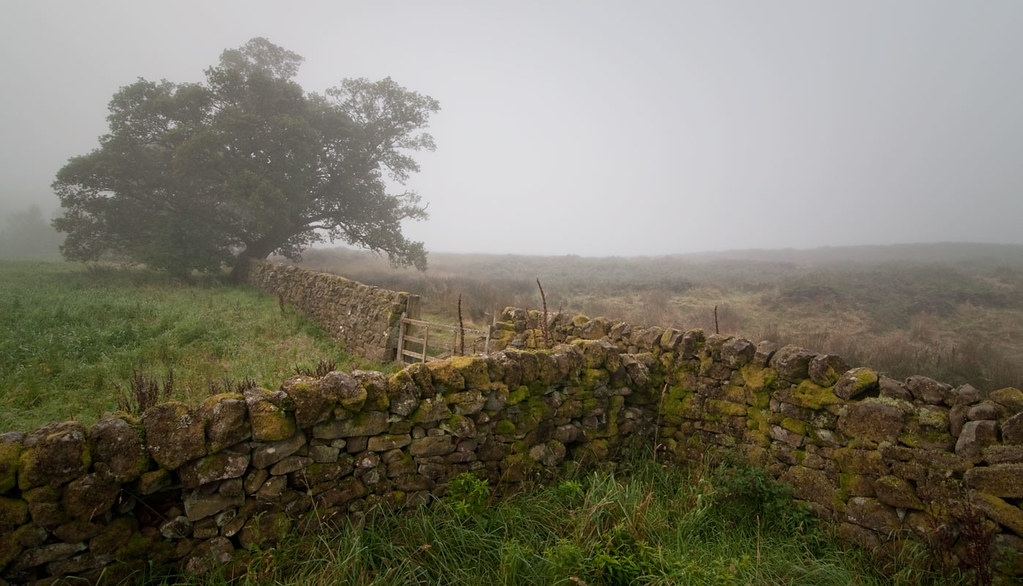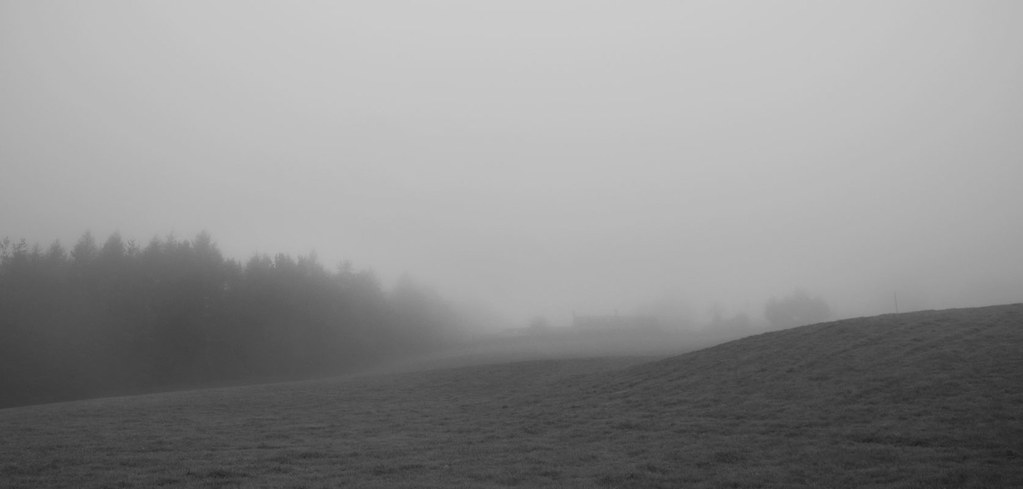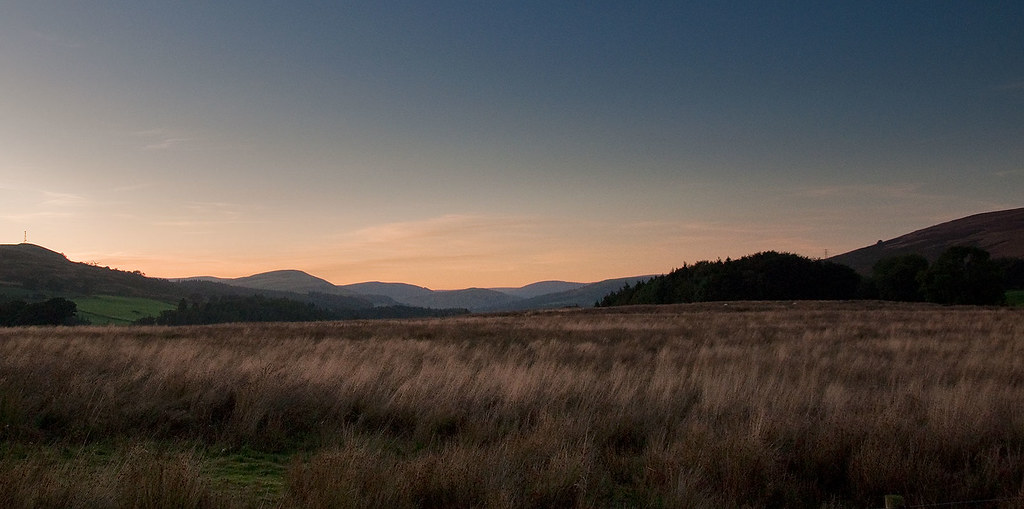
Stone fences, Langholm, Dumfriesshire, Scotland: photo by Bug in Box, 10 October 2009
I met ayont the cairney
A lass wi' tousie hair
Singin' till a bairnie
That was nae langer there.
Wunds wi' warlds to swing
Dinna sing sae sweet,
The licht that bends owre a' thing
Is less ta'en up wi't.
Hugh MacDiarmid (1892-1978): Empty Vessel, from Penny Wheep, 1926
ayont = beyond
cairnie = hillock
Wunds = winds
a'thing = everything

Calling of the fields, Langholm, Dumfriesshire, Scotland: photo by Bug in Box, 10 October 2009

Fields at sunset, Langholm, Dumfriesshire, Scotland: photo by Bug in Box, 10 October 2009



12 comments:
A nice musical setting of the poem (audio quality improves once she starts singing):
Hugh MacDiarmid: Empty Vessel, set to music by Francis George Scott, sung by Jo Miller
A vocalization by a Scots speaker (not George Clooney, but still):
Hugh MacDiarmid: Empty Vessel, read by Genericwaz
Such subtltey and feeling and sweetness in MacDiarmand’s poem, yet a grandeur too—“winds with worlds to swing.” I love the “light that bends over things” in the photographs. There’s nuance of tonality there. A moment sensed and expressed, by several artists in this case.
This has grown and grown on me. Hearing the words is extremely important, I think; I've always found the same to be true with Robert Burns. When reading interviews with certain Jamaican recording artists that are rendered in seemingly impenetrable patois, reading them aloud to oneself always works. I once read that Jamaican dialect is closely related to Burnsian Scottish. On a semi-related note, years ago Caroline worked as the publicist for the late Scottish recording artist Gerry Rafferty (from Stealer's Wheel; later of Baker Street fame). Gerry was from Glasgow and was barely understandable engaging in normal speech, which baffled American interviewers. Caroline considered suggesting that he sing his interviews, where he would have fallen (like Van Morrison) into pure American tones, but thought better of it. Curtis
The idea of the bereft mother being more taken up with her lost bairn than the "bending" light is taken up with care for the world it illuminates is deeply moving in a way that is at once intimate and sad, and expansive and suprapersonal in its curious inexplicable expressiveness. Only poetry knows how to do that.
That "nuance of tonality" is palpable, and surely has something to do with the sense of commonalty of experience that comes across with the echoes of centuries of vernacular speech.
Again, that "synthetic Scots" may be a construct -- but paradoxically again, that is the art in it.
Exactly: That is the art in it. And also in your introduction of the almost-fully-wrecked by political discourse word "nuance" into the conversation. I'm happily awaiting the arrival of a Hugh MacDiarmid poem collection at the moment. Seeing these photos makes me want to move to Scotland, but Jane's holding out for Saipan. It's a long story. Curtis
Curtis,
I am of your party in the dispute.
After all, has anyone e'er writ a tune like this about going to Saipan?
O ye'll tak' the high road, and Ah'll tak' the low
And Ah'll be in Scotlan' afore ye
Fir me an' my true love will ne-er meet again
On the bonnie, bonnie banks o' Loch Lomon.
Very glad you like MacDiarmid, his wee radge of a ghost would be chuffed.
On this kind encouragement, more MacD is e'en now being distilled.
OK, Curtis, let's see what glories Saipan can throw up to match these:
Hugh MacDiarmid: The Watergaw
I am making my way to MacDiarmid by way of my ear and because Adrienne Rich finds him so important for poetry, for resistance. Your post is glorious and my understanding is that I can take it to word pond. The Watergaw, one day, too. Ok? Thanks, , Donna
Sure, Donna. But can you let me know when you post? (And of course it's important to make sure any images are correctly attributed -- though that probably goes without saying.)
Tom, thanks for taking me to school, again and again.
This is just wondrous.
"Singin' till a bairnie That was nae langer there."
Oh, the heartstrings are fraying here.
Thanks Don. For me, too, a wee tear sprung by this one. (Perhaps it's just that goldang leaky lacrimal punctum.)
Once upon a time in the distant past I learned this wonderful poem and wrote about it for a Scottish lit exam. It has always stayed with me. Beautiful
Post a Comment